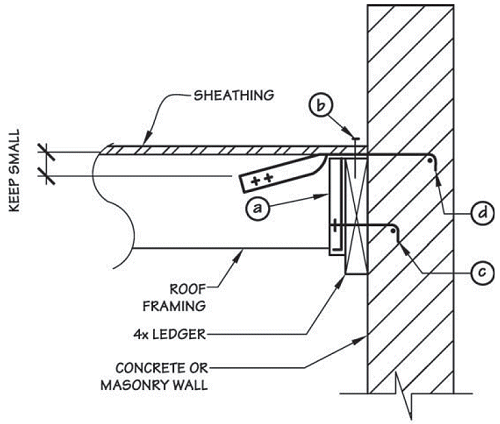Concrete/masonry Walls + Wood Diaphragms
common in one-story commercial & industrial buildings
connection failures during earthquakes → changes to ASCE 7see sections 12.11.1 to 12.11.2.2.7
Experts challenge Home Depot building design, codes after Joplin tornado
"If the building code had required the Home Depot store to have stronger roof-to-wall connections, it might have sustained less damage..."
"'Once you lose one (wall) panel, then the dominoes all start to fall...'"
Kansas bio-defense lab will get hurricane upgrade
...the hardening would make the lab withstand wind speeds of up to 230 mph, a standard the department said would match current Nuclear Regulatory Commission requirements for nuclear facilities in the heart of the United States.
Winds in the Joplin tornado have been estimated at 200 mph-plus.
The Wolf Creek nuclear power plant near Burlington, Kan., built according to an older NRC standard, is designed to withstand wind speeds of up to 360 mph and “rotational” winds of 290 mph.
In a risk analysis released last year, scientists said the chances of a tornado striking the lab were very remote. It found that, on average, a smaller tornado with wind speeds around 150 mph would hit the structure and cause the release of the foot and mouth virus about every 770 years. But the same analysis also pointed out the weakness of the initial building design. In 2010, the report said, the lab might fail in basic wind speeds higher than 90 mph.
Load Flow
avoid cross-grain tension on ledge
framing needs to extend sufficiently far into diaphragm to transmit large loads → subdiaphragms
See textbook for top-of-wall connection
